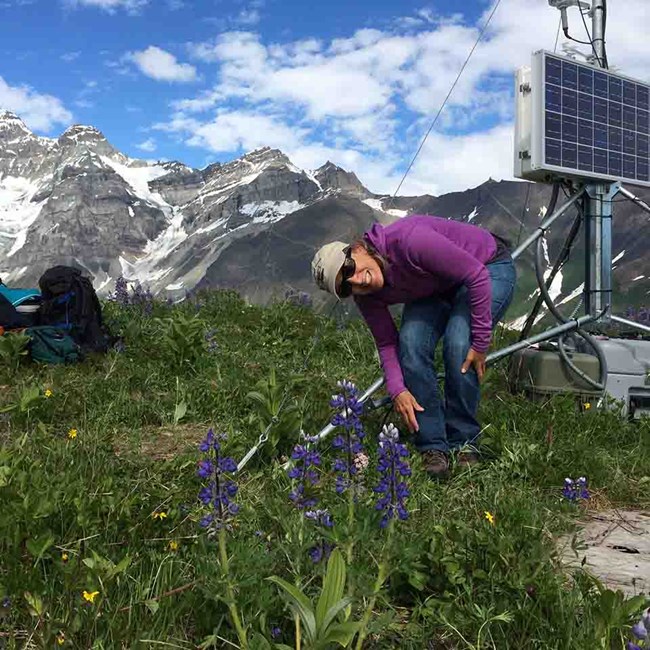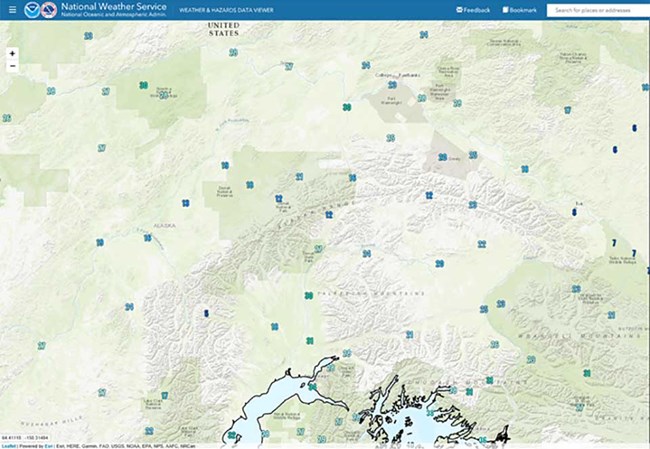
Climate is considered to be the most important broad-scale factor influencing ecosystems and, therefore, the natural resources of parks. Because global climate models indicate that climate change and variability will be greatest at high latitudes, climate monitoring is critical to understanding the changing conditions of park ecosystems. One of the fundamental ways the Central Alaska Network is helping to assess these changes is by maintaining climate stations in remote mountainous areas of the parks. These stations continuously record temperature, precipitation, wind speed and direction, soil temperature, relative humidity, snow depth, and solar radiation. They provide critical quantitative data for current and future research and management decisions.
The effects of our warming climate on Alaska park resources can be dramatic in the form of melting glaciers and permafrost, more frequent fires, and changes in vegetation. The data and information gathered from Alaska's parks provide an important piece of the puzzle for understanding the drivers and effects of climate change locally and regionally (even globally).
We monitor and record weather conditions at representative locations in the parks in order to:
- identify long- and short-term weather and climate trends
- provide reliable climate data to other researchers
- participate in larger-scale monitoring and modeling efforts beyond park boundaries
We monitor climate across all Central Alaska Network parklands.
See our weather summaries.
Contact: Pam Sousanes

National Weather Service
Weather and Hazards Data Viewer
See the most recent observations from our weather stations.
Also see new PRISM data available. Average monthly and annual precipitation and minimum, maximum, and mean termperature data for the period of 1981-2018 are available for the state of Alaska. The PRISM (Parameter-elevation Regressions on Independent Slopes Model) climate mapping system integrates existing climate station data with scientific understanding of general climate processes and local climate features.
Learn more
Last updated: March 6, 2025
